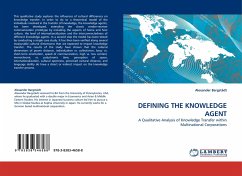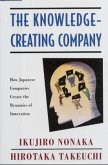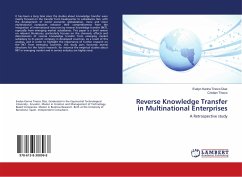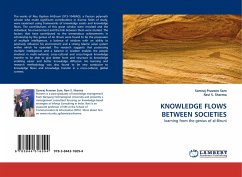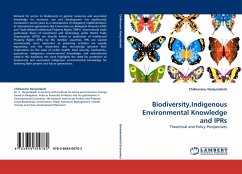This qualitative study explores the influences of cultural differences on knowledge transfer. In order to do so a theoretical model of the individuals involved in the transfer of knowledge, the knowledge agents, has been developed, extending the classic sender-receiver communication prototype by including the aspects of home and host culture, the level of internationalization and the interconnectedness of different knowledge agents. In a second step the model has been tested by conducting a single case study. It has then been verified along several measurable cultural dimensions that are expected to impact knowledge transfer. The results of the study have shown that the cultural dimensions of power distance, individualism vs. collectivism, long- vs. short-term orientation, speed of communication, high vs. low context, monochronic vs. polychronic time, perception of space, internationalization, cultural openness, perceived cultural distance, and language ability do have a direct or indirect impact on the knowledge transfer process.
Hinweis: Dieser Artikel kann nur an eine deutsche Lieferadresse ausgeliefert werden.
Hinweis: Dieser Artikel kann nur an eine deutsche Lieferadresse ausgeliefert werden.

